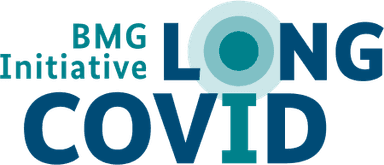Dec 2021 | Public Health Reviews | University of Zurich | Swiss Federal Institute of Technology Zurich
New findings on Long COVID in children and adolescents
A review paper summarises, among other things, the results of studies on the frequency of Long COVID in children and adolescents. According to the review, initial studies show that about 2 to 3.5 % of children and adolescents who previously had COVID-19 and were mainly treated as outpatients could develop Long COVID symptoms. Overall, however, the data situation is rather fragmented. The work was done jointly by the University of Zurich, ETH Zurich and the Institute for Health Metrics and Evaluation (USA) and published in the journal Public Health Reviews.
The Robert Koch Institute (RKI) also reports on the latest findings on Long COVID in general and also on Long COVID in children and adolescents on its website.
Public Health Reviews
Public Health Reviews is an independent journal published by the non-profit Swiss School of Public Health (SSPH+) that focuses on developments in public health. The journal publishes comprehensive overview articles, systematic reviews, meta-analyses, commentaries and other scientific contributions written by experts in the field of public health.
University of Zurich
The University of Zurich (UZH for short) is the largest university in Switzerland. As a comprehensive university, it unites all the classical faculties under its roof: Theology, Law, Economics, Medicine, Veterinary Medicine, Philosophy and Mathematics/Natural Sciences.
Swiss Federal Institute of Technology Zurich
The Swiss Federal Institute of Technology Zurich, ETH Zurich for short, is a technical and scientific university in Zurich. ETH Zurich is integrated into the ETH Domain, which comprises the Technical University in Zurich and the one in Lausanne as well as four other research institutes: Paul Scherrer Institute (PSI), Swiss Federal Institute for Forest, Snow and Landscape Research (WSL), Swiss Federal Laboratories for Materials Testing and Research (Empa) and Swiss Federal Institute of Aquatic Science and Technology (Eawag).
